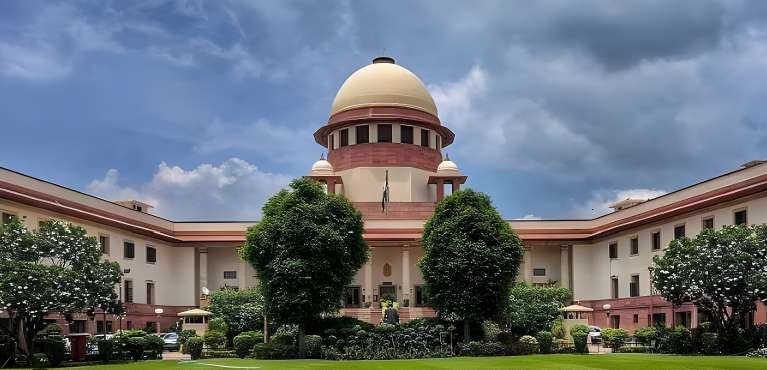
There should be no confusion with the Central goverment’s legal powers to abrogate Article 370 and any alleged abuse of process in doing so, the Supreme Court remarked on Wednesday. [In Re: Article 370 of the Constitution].
A Constitution Bench of Chief Justice of India (CJI) DY Chandrachud and Justices Sanjay Kishan Kaul, Sanjiv Khanna, BR Gavai and Surya Kant was hearing arguments of Senior Advocate Rajeev Dhavan, appearing for the J&K People’s Conference.
Dhavan began by arguing that Article 370 gave the erstwhile State internal sovereignty, which if denied means that the imposition of President’s Rule before the abrogation had failed in its purpose.
The CJI then asked how the question of validity of the abrogation can be dealt with in the context of Article 356(1)(c), which gives the President of India the power to suspend constitutional provisions when the constitutional machinery in a State has broken down.
Dhavan replied that the said proviso has to be read with the mandatory provisions under Article 3 (parliamentary procedure to form new states), since it gives the President wide-ranging powers.
“During President’s rule, Articles 3 and 4 cannot be invoked as they have conditionality attached, and the conditionality lies with the State legislature. And here the legislature was Parliament and the Governor became the President.”
Justice Khanna replied that such a broad proposition with respect to the two Articles may not be acceptable, as there may be situations that could not have been accounted for.
Dhavan stressed that parliament could not have been substituted for the legislature of a state (as was done during the abrogation of Article 370).
“There is a difference between existence of power and abuse of power, thus, let us not confuse it,” Justice Khanna replied.
Today was the sixth day of the hearing of the petitions challenging the Central government’s move in August 2019 that resulted in the revocation of the special status of Jammu and Kashmir (J&K).
The erstwhile State was subsequently bifurcated into two Union Territories.
The Union Home Ministry recently filed an affidavit before the Court stating that after the abrogation of Article 370, Jammu & Kashmir has witnessed unprecedented stability and progress, with stone pelting and school closures becoming a thing of the past.
During the course of today’s hearing, the CJI asked whether parliament can pass a law when there is President’s Rule under Article 356, by resorting to Article 256 of the Constitution.
Dhavan then stated,
“When it passes a law, it has to adhere to the conditionality of Articles 3 and 4 of the Constitution. Please see Article 168. These are safeguards for the federal structure of our country. These are the limits which the Constitution has in terms of federal structure.”
The senior counsel added that the State was bifurcated into two UTs without any reference to Articles 239 or 239AA.
“Jammu & Kashmir is not a dead horse. The autonomy of a state cannot be wished away like this just because the government says ‘okay the provision was taken away’. The autonomy of a state is fundamental to the Indian Constitution.”
He gave the example of special constitutional provisions granting autonomy to certain states and regions in North-East India, to argue that the Constitution has diverse provisions that cannot just be done away with.
Dhavan stressed that the Constitution cannot be read like a statute and that Article 370 is part of the basic structure of the Constitution.
“Articles 3, 4 and 370 cannot be invoked during President’s Rule at all since it requires existence of the State legislature. How can a Constitution disappear like this? J&K Reorganisation Act is in violation of the process of Article 3. What was lost? Loss was of statehood by degrading it to a UT, abolition of concurrence provisions, violation of residuary powers. It is pleaded to restore statehood to J&K, and abrogate the President’s Rule.”
Senior Advocate Dushyant Dave then began his submissions. He said that Article 370 was a promise made regarding special status and it could not have been breached at any point of time.
“Article 370 is unusual draftsmanship. It is temporary by object, the purpose. Once that purpose is sub-served, nothing remains for the President to exercise.”
Dave emphasised that constitutionalism would trump any ‘national interest’ argument urged by the Central government in favour of the abrogation.
“Let us assume that today this decision is in national interest, but the next decision may not be in national interest. That is why the Court needs to step in, lay down a law, so that the constitutionalism comes to play and this is not repeated anywhere else.”
As the hearing drew to a close, CJI Chandrachud asked counsel for the petitioners to try and conclude their arguments by Tuesday, August 22.
Name- Priya Dubey , College- Lloyd law college. , Semester- 3rd intern under legal vidhiya.




0 Comments